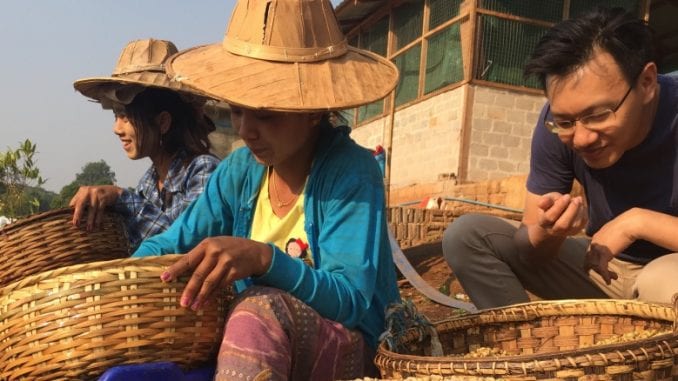
Impressive quality—and nearly 90-point coffees—shine at the Myanmar Coffee Cupping Competition, thanks in large part to a value-chain project in the region.
BY CHRIS RYAN
BARISTA MAGAZINE ONLINE
Photos courtesy of Dane Loraas
Myanmar may not have been in the vocabulary of specialty-coffee professionals just a few years ago, but chances are it has entered it now—or will soon. Much of the credit for that can go to the Myanmar Coffee Cupping Competition, an annual contest that launched in 2015 and earlier this month held its third event.
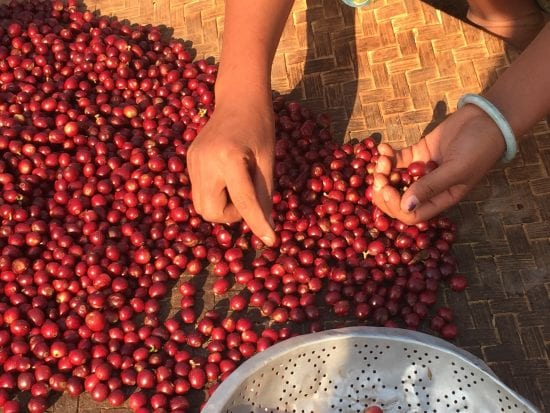
Organized by the Myanmar Coffee Association and the Coffee Quality Institute (CQI), the competition showcases Myanmar coffees, which have been rapidly improving thanks to the Value Chains for Rural Development in Burma project implemented by development organization Winrock International. The project has been delivering technical assistance—with the help of project partner CQI—as well as working to provide market access for Myanmar coffee farmers, in turn increasing production and income of 80,000 households. (Find out more about the project in this article from Scott Conary in the current issue of Barista Magazine.)
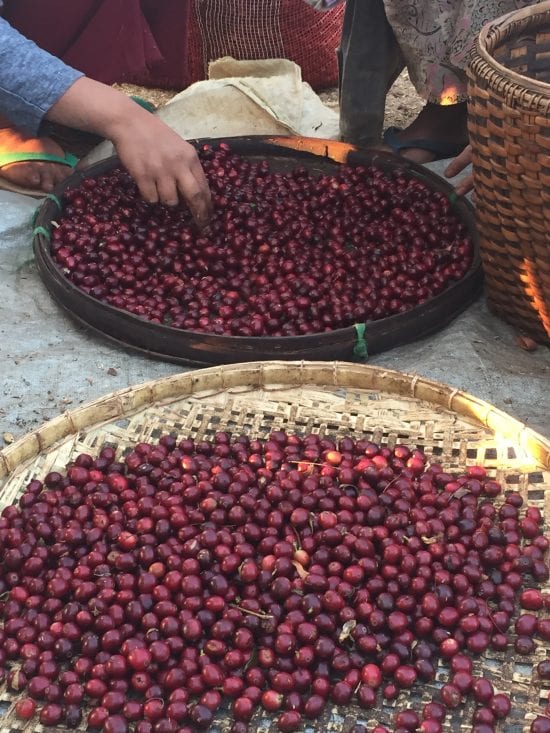
The competition took place in Ywangan, a hub for coffee-producing communities in Myanmar’s Shan State. Myanmar coffee producers entered a total of 72 coffees—40 naturally processed coffees, 29 washed, and three semi-washed—which were evaluated by a panel featuring head judge Sunalini Menon from coffeelab in India, Richard Corney of Raw Material in New Zealand, and Dane Loraas from Sustainable Harvest Coffee Importers in Portland, Ore.
An impressive 26 of the 72 coffees scored 85 points or higher. The top prize went to Mandalay Coffee Group’s Ywangan natural, which earned a staggering 89.58. It was a considerable scoring increase over last year’s winner—a washed coffee from Pyin Oo Lwin’s Green Land Coffee estate at 87 points—and the winning score of 84.25 in 2015.
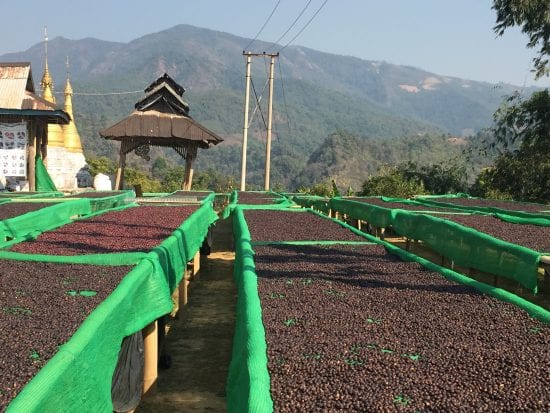
Head judge Sunalini says the coffees were indeed impressive, describing the winning natural-processed coffee thusly: “It was a sparkling, bright coffee, saturated with complex flavors of orange, lemon, berries, chocolate and caramel, laced with banana and grapefruit—all dipped in brown sugar. The mouthfeel was smooth, rounded and wholesome, with a sweet finish. I admired not only its flavors, its mouthful, and its brightness and finish, but also its cleanliness in the cup.”
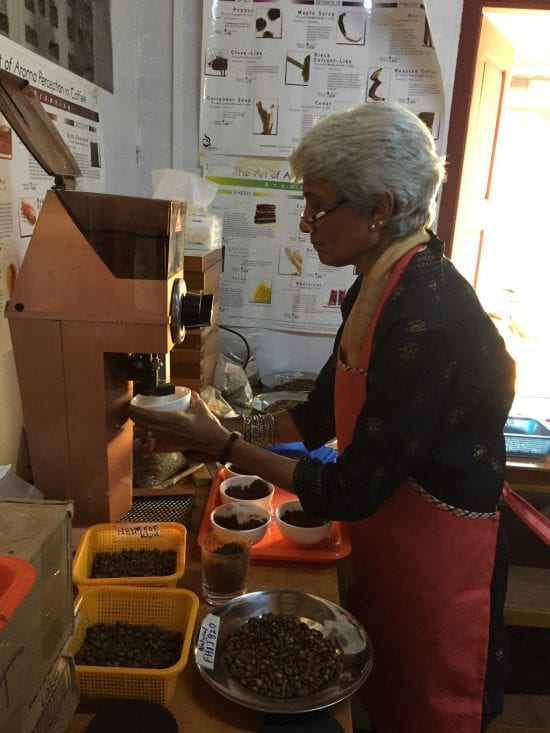
The increased cupping scores and complex, flavorful coffees are an indication that the value-chain project is succeeding in improving quality in Myanmar. Competition judge Richard from Raw Material visited coffee communities during the trip and says farmers are clearly adopting best practices. “The high standard of processing practices I witnessed at community drying stations are some of the best I’ve seen in any origin,” he says.
Andrew Hetzel, a consultant who works with CQI, says another sign of encouragement is that coffee is being adopted more in the country, with 23 communities representing thousands of households participating in this year’s competition compared to five communities taking part in last year’s. “I hope that this pace of expansion will grow to include dozens more communities, representing tens of thousands of households more who can benefit from sustainable increased earning from coffee production,” Andrew says. “The progress has been nothing short of amazing so far, and I believe that if it can be done anywhere, it can be done in Myanmar.”
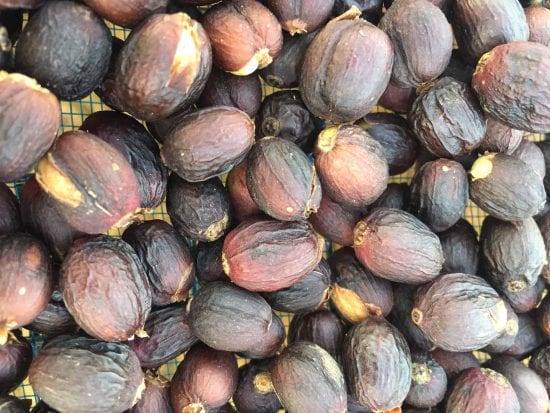
Those interested in learning more about Myanmar coffees and tasting some of these coveted offerings can visit the Myanmar Coffee Association at Booth #917 at next month’s Global Specialty Coffee Expo at the Washington State Convention Center in Seattle. CQI will also hold a cupping of Myanmar coffees during the expo from 3:45 to 5:30 p.m. April 22 in Room 618 in the Cupping Exchange area.

